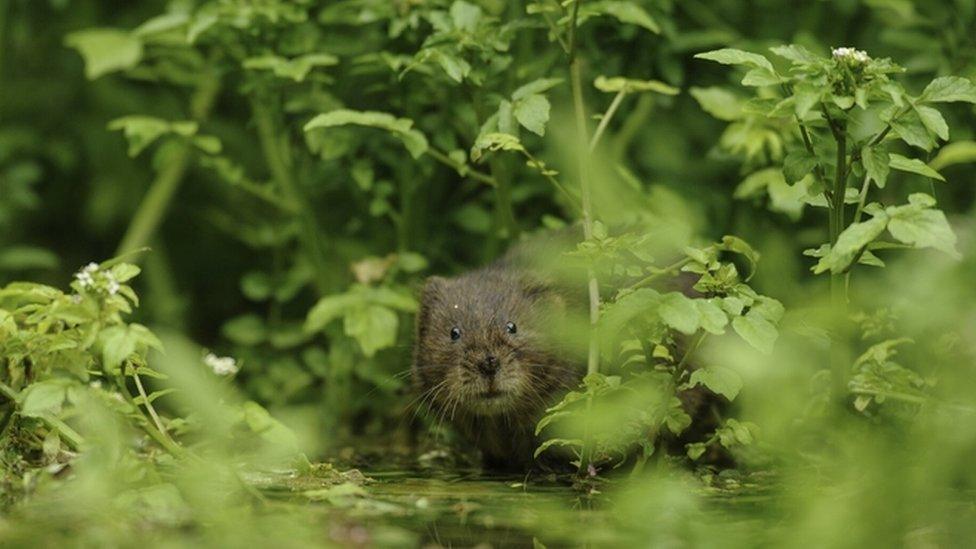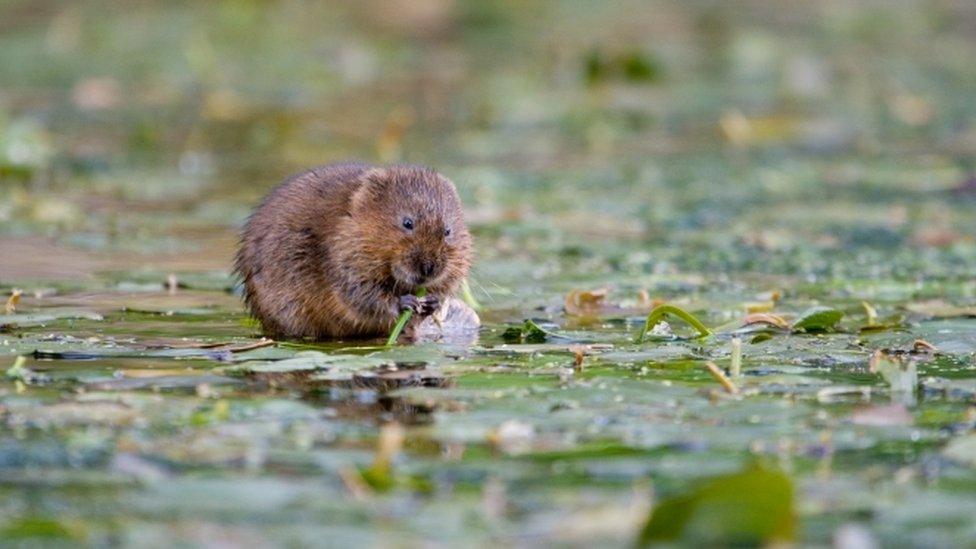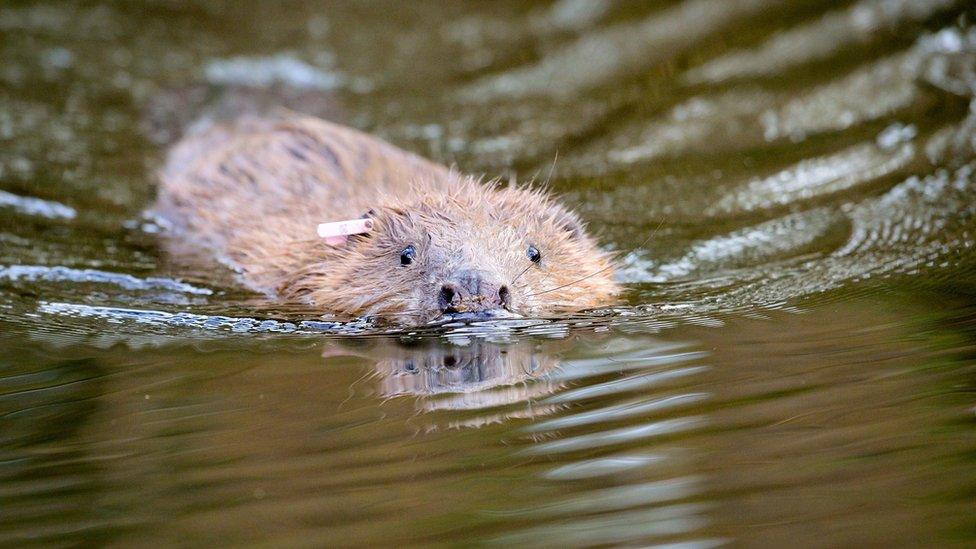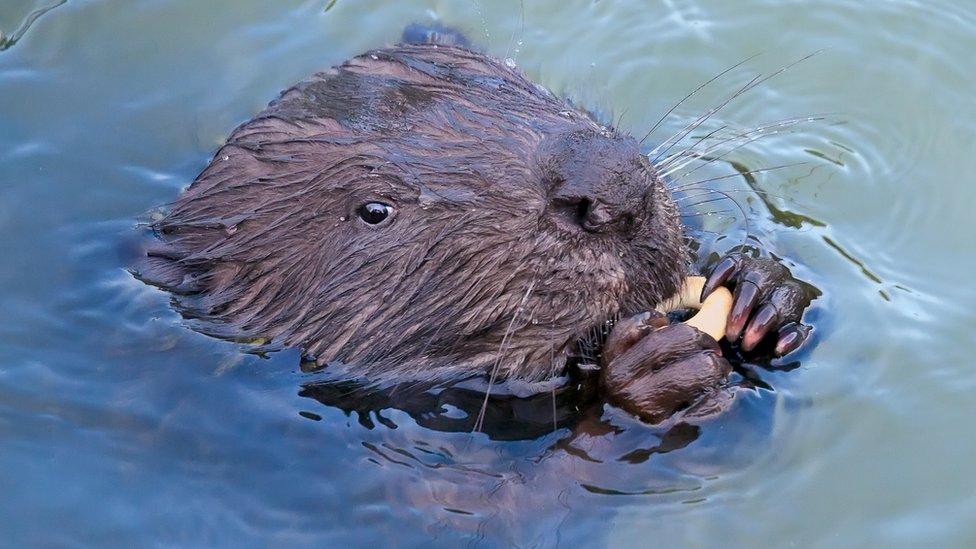Water voles return to River Ver after 30-year absence
- Published

Water voles were last seen in the Ver Valley north of St Albans in 1987
Endangered water voles are set to return to a river after 30 years.
The Herts and Middlesex Wildlife Trust, external, together with the Ver Valley Society, external, plans to reintroduce about 150 of the animals to the banks of the River Ver, north of St Albans, next spring.
Due to habitat loss, they were last seen there in 1987 but extensive restoration work has improved the area.
The trust called it a "major breakthrough for wildlife" in the valley.
Water voles are usually found in chalk rivers, but since the 1950s their populations have decreased by more than 90% due to river pollution and predation by non-native American mink.
Because the nearest population is near Rickmansworth, Hertfordshire, the animals would not be able to populate the Ver Valley area by themselves.

Water voles are usually found in chalk rivers but since the 1950s their populations have decreased
Animals supplied by a specialist breeder will be released along a privately owned 5km (3.1m) stretch of river between St Albans and Redbourn in May.
They will be closely monitored and it is hoped they will make their way up and down the river over the next few years.
This particular stretch of river provides "perfect conditions" in its dense bankside vegetation and clean water, according to the trust.
Conservation manager Tim Hill said: "Water voles are Britain's fastest-declining mammal and need our help now - but it's not too late to bring them back from the brink, as this and other projects in the area prove."
In 2015, the trust introduced water voles to Thorley Wash Nature Reserve, near Bishop's Stortford, where the animals were now "thriving", it said.
Chairman of The Ver Valley Society, John Pritchard, said the project was "recognition of the quality of the habitat and capitalises on the prospect of improved flows".
The project is funded by the Debs Foundation, which supports animal welfare and wildlife charities, and is part of a programme to expand the territory of the animals in Hertfordshire.

Find BBC News: East of England on Facebook, external, Instagram, external and Twitter, external. If you have a story suggestion email eastofenglandnews@bbc.co.uk
Related topics
- Published30 November 2020

- Published30 November 2020
